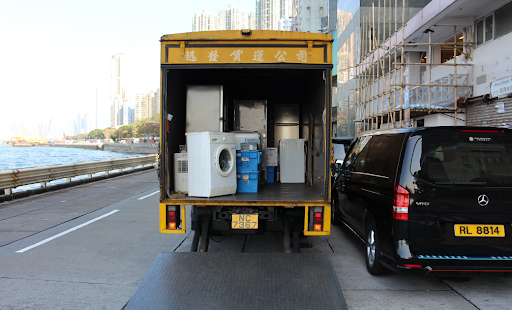Moving to a new home, even if it’s just across town, involves a series of tasks and logistics that can feel overwhelming without proper planning.
Whether you’re moving into a larger space, downsizing, or simply relocating within the same neighborhood, effective management of your local move can make the process smoother and less stressful. Here are five essential tips to help you manage your local move efficiently:
1. Start Planning Early
Planning is key to a successful move. Start as early as possible to give yourself enough time to organize and execute each step of the moving process.
Create a moving checklist or timeline that outlines tasks such as sorting belongings, packing, scheduling movers (if applicable), transferring utilities, updating your address, and notifying important contacts. By breaking down the tasks into manageable steps and spreading them out over several weeks, you can avoid last-minute rush and reduce stress.
2. Declutter and Organize
Moving presents an excellent opportunity to declutter and organize your belongings. Before you start packing, go through each room and decide what items you want to keep, donate, sell, or discard.
Purging unnecessary items not only reduces the amount of stuff you need to move but also makes unpacking and settling into your new home easier. Consider holding a garage sale before the local move, donating usable items to charity, or selling items online to lighten your load and potentially offset moving costs.
3. Pack Strategically
Efficient packing is essential for a smooth move. Start packing non-essential items early, using sturdy boxes, packing paper, bubble wrap, and packing tape to secure fragile items. Label each box clearly with its contents and the room it belongs to, which will facilitate organized unpacking later.
Pack items from the same room together to simplify the unpacking process. Consider using color-coded labels or a numbering system to further streamline the process and ensure everything ends up in the right place in your new home. You can also get help from a professional moving company to help you pack and plan your move.
4. Arrange for Reliable Transportation
Even for a local move, reliable transportation is crucial. If you’re not hiring professional movers with their own trucks, ensure you have access to a suitable vehicle for transporting your belongings. Measure large furniture and appliances to ensure they will fit through doorways and hallways at your new home.
Consider renting a moving truck or van if needed, and make arrangements well in advance to secure the vehicle on your moving day. Having a reliable mode of transportation ensures that your belongings arrive safely and on schedule.
5. Notify Utilities and Update Your Address
Don’t forget to notify utility companies of your move and arrange for services to be disconnected at your current home and connected at your new residence. This includes electricity, water, gas, internet, cable, and any other essential services.
Schedule disconnection and connection dates ahead of time to ensure a smooth transition. Additionally, update your address with important contacts and organizations, such as banks, insurance providers, employers, and subscriptions.
Even for a local move, reliable transportation is crucial. If you’re not hiring professional movers with their own trucks, ensure you have access to a suitable vehicle for transporting your belongings. Measure large furniture and appliances to ensure they will fit through doorways and hallways at your new home.
Consider renting a moving truck or van if needed, and make arrangements well in advance to secure the vehicle on your moving day. Having a reliable mode of transportation ensures that your belongings arrive safely and on schedule.
Create a moving checklist or timeline that outlines tasks such as sorting belongings, packing, scheduling movers (if applicable), transferring utilities, updating your address, and notifying important contacts. By breaking down the tasks into manageable steps and spreading them out over several weeks, you can avoid last-minute rush and reduce stress.





